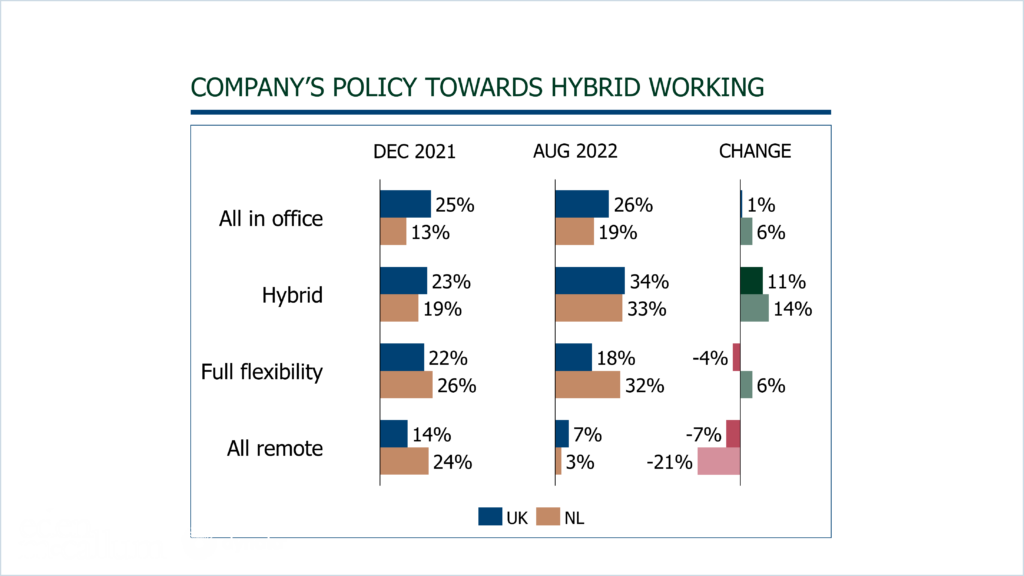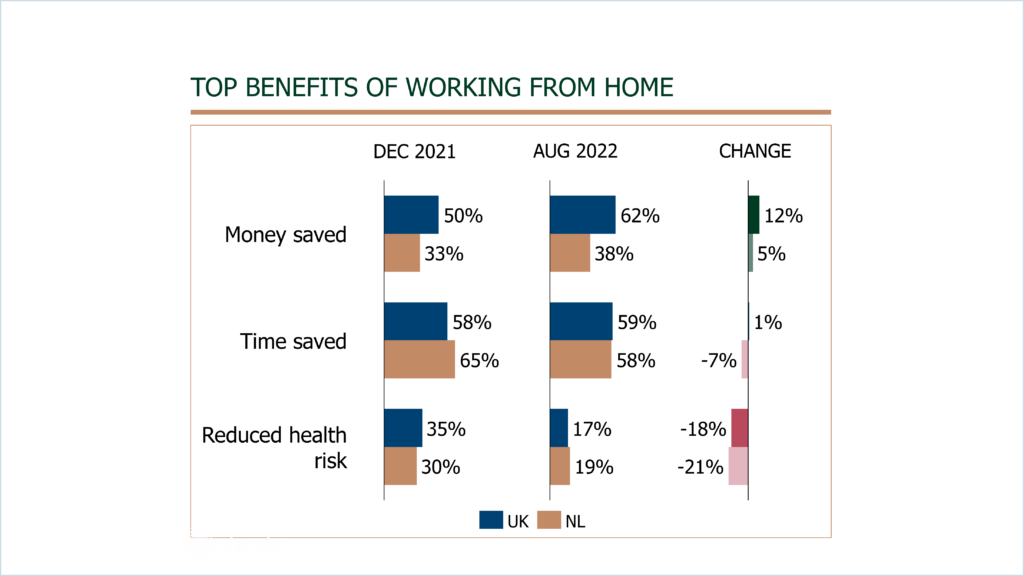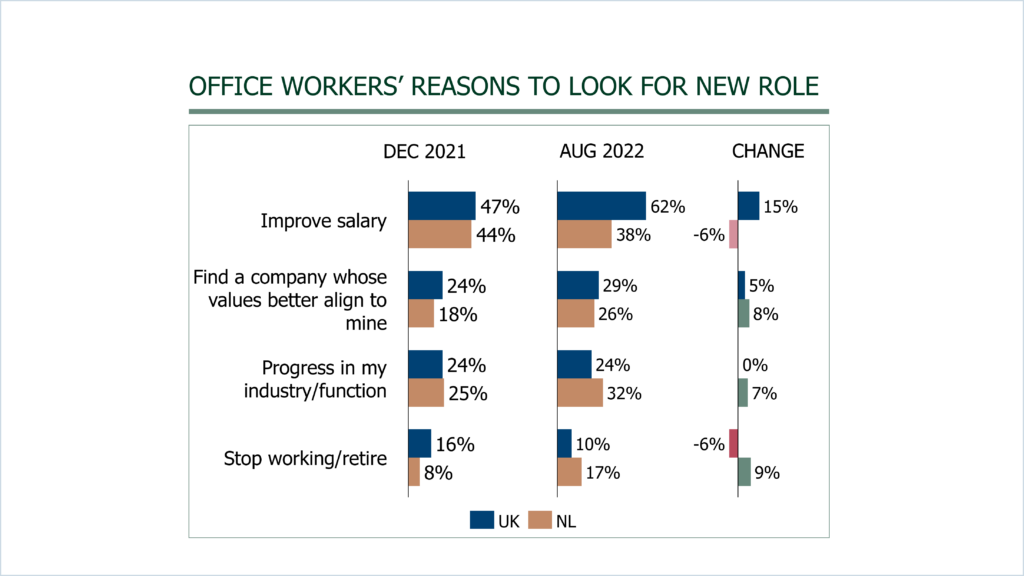Eden McCallum – Insights on hybrid working
October 2022
While the shock of the Covid-19 pandemic may finally be beginning to wear off, for office-based workers a new dilemma is emerging. Employers might want to see higher attendance levels in the workplace however, over the past two years new employee habits have been acquired, and not everybody is enthusiastic about returning.
What are the priorities for workers now, and how have they changed from a few months ago? To answer this question Eden McCallum has surveyed more than 700 employees in both the UK and the Netherlands to test attitudes to hybrid working and discover how the future might play out.
The data shows that attitudes are shifting as memories of lockdowns and constant remote working begin to fade. But the “new normal” may have to be negotiated, and there are risks for employers who fail to recognise how the expectations of employees have changed.
Certainly, working patterns have altered since the end of 2021. In the UK the proportion of respondents working from home every day has halved since December 2021. More formal structuring, and consequently less flexibility, during the working week is in place. Around one in three employers now specify a set number of days in the office, compared with one in four nine months ago.

In the Netherlands the proportion of office workers working from home every day has dropped by around 20 ppts since December 2021, with one in three employers now specifying a set number of days in the office compared with one in five in December 2021.
As employer policies shift towards spending more time in the office, the average number of days worked from home has fallen by about half a day in the UK and by almost a whole day in the Netherlands since the end of last year.
Have the benefits employees enjoyed from hybrid working changed? In both the UK and the Netherlands workers continue to appreciate the time saved by not commuting. British workers are increasingly focused on the money saved (62% say so, compared with 50% in December), perhaps reflecting the deepening cost of living crisis. In both countries nervousness over health and safety risks have fallen – in the UK and NL c.20% mention this as a concern now, compared with more than 30% last December.

In both countries hybrid working continues to be a significant factor for workers when they consider their next role, with three in four seeing it as important. Pay is also a key issue for workers in both countries. In the UK pay is seen as being even more important than in December – 62% say so now, up from 47% nine months ago. In the Netherlands, office workers are more focused on progressing or moving into a new type of role in their next job. Interestingly, in both countries, finding a company whose values align with their own has increased in importance.

Dena McCallum, co-founder of Eden McCallum, says that workers seem ready to consider the benefits of returning to the office, but that nothing should be taken for granted. “We can see that concerns over risks to health have fallen significantly, but at the same time employees recognise how well hybrid working has worked for many of them,” she says. “The task now for leaders is to show how returning to the office could be of benefit to both employees and the businesses they work for.”
To view the full results, please click here for the UK and click here for the Netherlands.
Follow us on LinkedIn to remain updated.

